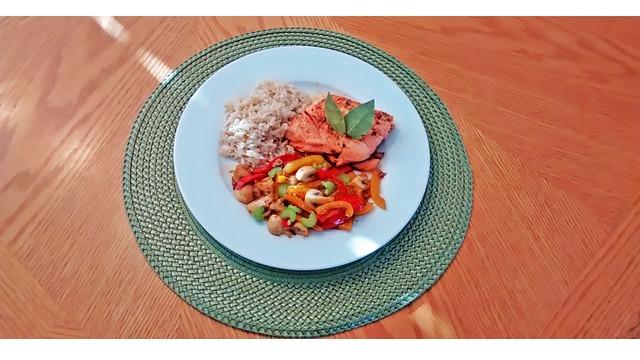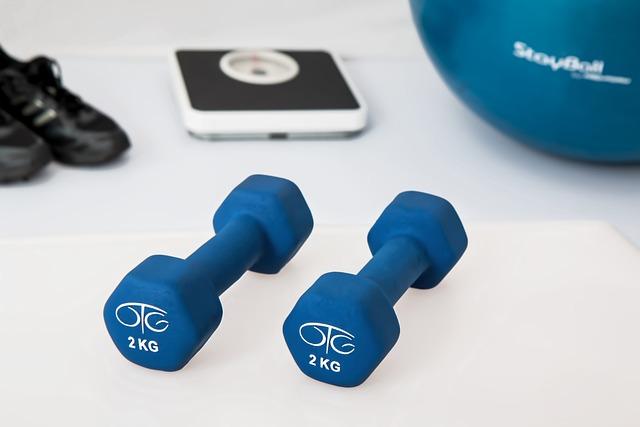Embarking on a journey to achieve sustainable weight loss can often feel like navigating a maze of conflicting advice, fleeting trends, and unrealistic expectations. You’ve likely encountered the allure of fad diets promising quick fixes, only to find that they leave you back at square one—or worse, feeling disheartened and defeated. The truth is, sustainable weight loss isn’t about depriving yourself or adhering to extreme regimens; it’s about making mindful, lasting changes that honor your body and its unique needs. In this guide, we’ll explore practical, compassionate strategies to help you shed pounds in a healthy, enduring way. Together, we’ll uncover the principles of balanced nutrition, the importance of physical activity, and the role of mental well-being, all without the pitfalls of fad diets. Let’s take this step-by-step, focusing on progress, not perfection, and empowering you to create a lifestyle that supports both your weight loss goals and overall happiness.
Understanding Your Bodys Unique Needs
Everyone’s body is different, and understanding what your body specifically needs is crucial for sustainable weight loss. Instead of following one-size-fits-all diets, focus on listening to your body’s signals and cues. Here are some personalized strategies:
- Identify Your Metabolism Type: Some people have fast metabolisms, while others have slower ones. Tailor your diet to your metabolism by consulting a nutritionist or using metabolism-tracking apps.
- Understand Your Hunger Signals: Pay attention to when you feel genuinely hungry versus when you eat out of habit or emotional triggers. Practicing mindful eating can help you differentiate between the two.
- Consider Food Sensitivities: Certain foods may cause inflammation or discomfort for some people. Identifying and eliminating these can improve overall well-being and weight management.
By focusing on your body’s unique requirements, you can create a sustainable eating plan that promotes long-term health and weight loss without the need for restrictive fad diets.

Creating a Balanced and Enjoyable Meal Plan
Designing a meal plan that is both balanced and enjoyable is key to sustainable weight loss. Start by incorporating a variety of food groups to ensure you’re getting all the necessary nutrients. Aim to include:
- Lean proteins: Think chicken, fish, tofu, and legumes.
- Whole grains: Opt for brown rice, quinoa, and whole wheat pasta.
- Healthy fats: Include sources like avocados, nuts, and olive oil.
- Fruits and vegetables: A colorful array of these can make your meals more appealing and nutritious.
It’s important to balance these elements with your personal tastes and preferences. Enjoying what you eat will make it easier to stick to your plan. Consider using herbs and spices to add flavor without extra calories, and don’t be afraid to experiment with new recipes. Remember, the goal is to create a meal plan that feels less like a diet and more like a sustainable lifestyle change.

Incorporating Physical Activity That You Love
Finding ways to stay active that you genuinely enjoy can be a game-changer in your weight loss journey. Physical activity doesn’t have to mean hitting the gym or running on a treadmill; it can be anything that gets you moving and makes you happy. Consider the following activities:
- Dancing: Whether it’s salsa, hip-hop, or ballroom, dancing is a fantastic way to burn calories while having fun.
- Hiking: Explore nature trails and enjoy the scenic beauty while getting a good workout.
- Swimming: A full-body exercise that’s easy on the joints and perfect for all fitness levels.
- Cycling: Ride through your neighborhood or take a spin class for a great cardiovascular workout.
- Yoga: Improve your flexibility and mental well-being while engaging in a low-impact activity.
- Team Sports: Join a local soccer, basketball, or volleyball team to make new friends and stay active.
By integrating activities that you love into your routine, you’re more likely to stick with them long-term. Remember, the best exercise is the one you enjoy and will do consistently.

Building Long-Term Healthy Habits
To truly transform your lifestyle and achieve lasting weight loss, it’s essential to focus on cultivating long-term healthy habits. This approach not only leads to sustainable results but also enhances your overall well-being. Here are some actionable strategies to get you started:
- Set Realistic Goals: Begin with small, manageable changes. Instead of aiming to lose a significant amount of weight quickly, focus on losing 1-2 pounds per week.
- Prioritize Balanced Nutrition: Incorporate a variety of foods from all food groups. Emphasize whole grains, lean proteins, healthy fats, and plenty of fruits and vegetables.
- Stay Hydrated: Drinking enough water is crucial. Aim for at least 8 cups a day, and consider herbal teas or infused water if plain water feels monotonous.
- Consistent Physical Activity: Find an exercise routine that you enjoy and can stick with. Whether it’s walking, cycling, or yoga, the key is consistency.
- Mindful Eating: Pay attention to your hunger and fullness cues. Avoid distractions like TV or smartphones during meals to fully enjoy and savor your food.
- Get Adequate Sleep: Aim for 7-9 hours of quality sleep per night. Poor sleep can negatively impact your metabolism and hunger hormones.
Remember, the journey to sustainable weight loss is a marathon, not a sprint. Be patient with yourself, and celebrate your progress along the way.





